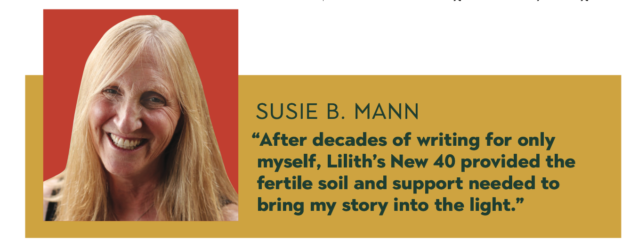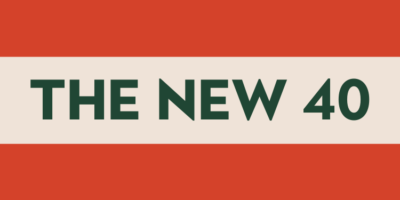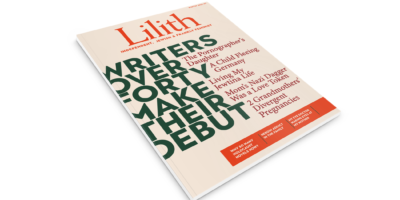
In the Shadow of Porn

AT A LUNCH last summer, my friend told a story about her neighbor, a young man who had married his longtime girlfriend a few months before. Families were elated, story book wedding, playful honeymoon.
Six weeks later, the neighbor announced he was leaving the marriage for a woman he’d been dating secretly for 18 months.
The groom’s mother was mortified, overwhelmed with shame, and could hardly bear the embarrassment. She did not want to believe, she told my friend, that her child could do such a thing. I heard little else of the story after that. I know the kind of storm for which she was claiming responsibility, the one for which she was needlessly repenting, the shame for the actions of another.
I put down my fork and was swept decades from my salad, back to a time brimming with…well, with too much. That’s what brimming is, isn’t it? Too much.
The year 1968 was a time when the U.S. was ripe with change. Nationwide protests and movements affected every aspect of our culture. Anti-Vietnam War. Pro Civil Rights. “Hippie” counterculture critiques of commercialism and societal norms. Sexual liberation. In its first three weeks of publication, two million people bought copies of Sex and the Single Woman with its then-unspeakable content. The FDA had approved The Pill in 1960, the same year the Supreme Court determined Lady Chatterley’s Lover was protected by the First Amendment. The United States was restless.
Late that same year, my father’s pornography warehouse in Baltimore was raided by the FBI. Scores of agents searched and seized boxes they suspected held obscene and pornographic material, all of it for distribution domestically and abroad.
It was late afternoon when the reporting and film footage of the action reached Baltimore’s news stations. During my childhood, there were three television channels—ABC, NBC, and CBS. These networks aired live news only at 6pm and 11pm nightly.
On that early evening in 1968, I watched television in the family room of our house. Neither of my two older brothers or I recall where they were at the time. Only my mother was home, in her bedroom with the door uncommonly locked. Before I knocked, I could hear her sobs. She promised to come out soon. I waited, then went back to watching what I tried to understand but couldn’t.
Clear as day, there was my father, the lead story on the nightly news, being hand- cuffed and led away by federal agents. The investigators told reporters that what they found was erotic, lewd, smutty. I felt the disgust behind their words, though I did not know their meaning. My father’s name was mentioned repeatedly by shocked and appalled news anchors. As he lowered his face from the camera, my father gave police an old warehouse address as his home address. Something was terribly wrong here and I was part of it. What was happening?
At one point in the evening, I made myself a Swanson’s Salisbury Steak TV dinner and ate it from its aluminum tray, then waited for the 11pm news.
Still alone.
Ten years old.
Three feet from the television.
In a room lit only by the screen’s light. On the floor with my knees in child’s pose, hearing, for the first time, of the raid on the family business. Learning, for the first time—like everyone else in the whole damn world—that my father had been taken into federal custody for something so shocking, humiliating, and despicable that it landed my mother in bed covered in blankets and despair. She was crumbling from the burden of humiliation and shame, and I took mental notes.
My mother was raised in a simple, loving Orthodox Jewish home filled with ritual, observance, and worship. Growing up, we had two sets of dishes, welcomed family and friends for her beautiful Friday night dinners, and attended Shabbat and Yom Tov religious services. From her, I learned the warmth and values of Judaism which course through my veins to this day.
I was never quite sure where my father stood on all this. He left the household and child-rearing to my mother, went to synagogue on the days my mother required, and refrained from bringing his cherished traif foods into the house. He’d scrub the filth from the warehouse off his hands with a nail brush before taking his place at the head of the Friday night table. If he balked about any of it, it was rarely, if ever, in front of my brothers and me.
My mother married my father when she was 18. After several years, she became the full-time bookkeeper for her husband’s successful international pornography business, a wildly unpredictable plot divergence from the world of her upbringing. I wonder to this day, 12 years after her passing, if she ever made peace with her starkly different worlds.
As the youngest of the children, I accompanied her almost daily to her desk at the warehouse, allowed to roam freely and unaccompanied in the dusty, high-ceilinged rooms. Cartons lay open on the floor, their salacious titles printed on the sides. Sweet Cheeks. Plump and Playful. Wild and Willing. From each, a topless woman looked up at me. Her lips might have been pursed in a kissing sort of way, or her curled tongue licking her glossy top lip. Boxes at every turn. A topless black woman with long hair, both hands pushing her large, round breasts up toward her chin. A white woman with a shaved head leaning forward, allowing her large breasts to dangle freely above a man’s waiting mouth. Box after box next to box. Breasts and penises and sweat and hands and oral sex. All staring at me. I did not look away. I remember feeling what I can only now describe as discomfort. Confusion. Fear. Cold. Invisible. Still, I did not look away. I was a little girl, and these people and images were everywhere. They were my inescapable and ongoing landscape.
Once I was older and more aware, I developed fears of power, of men, of sex, of nudity, of my body, of all bodies. This was my sex education, far from the world of any birds-and-bees narrative. Is this who I will become? How do I get these images out of my mind? Does anyone know I’m dying behind the smile on my face? I am so very afraid.
I had a close circle of girlfriends growing up. Not one of them knew I had been exposed to pornography from an early age, nor did I disclose the craziness I felt because of it. I shared nothing of that part of me with them. Or anyone. Because we lived in a tight-knit Jewish community, my friends’ parents knew the nature of my father’s business and his legal troubles. Most weekends, I was invited to sleepovers at their homes. The girls’ parents included me on family vacations. These times were freeing, and the memories of them rich still. At my fortieth high school reunion, one of these friends recalled her mother having said, quite explicitly, “Susie’s father is going through some trouble. We all love her. You and your group of friends must build a moat around her.” There will never be words enough to capture what every one of these friends means to me.
The family culture expressed itself in many ways that horrified me only as I grew up. At home after dinner while I did homework on the sofa, my father, seated nearby, held contact sheets from the week’s photo shoot up to the table lamp. He was selecting images for new magazines. I sorted copious amounts of cash from mail-in orders into separate denominations, then bundled and bagged the piles. On more than one occasion, I passed my father’s car at a phone booth where he was speaking to (dare I call them?) colleagues, all of whom suspected their homes were being wiretapped. “Do not talk about these things outside the house,” my parents instructed us, not gently. “This is family business, no one else’s.” Secrets. Silence. Silence yourself. No one can know.
More direct and personal were the “brace for impact” moments in my youth which give me pause to this day. My two older brothers for whom I would now take a bullet, nicknamed me Ina Vagina as a kid, a play on my middle name. They were never reprimanded. Not once. Ever. I hated it. Hated.
Even prior to the raid and arrest, but especially after, a good many in our Jewish community looked down on us, judged us. I was constantly worried about what mean, noxious things people were thinking or saying about us—because they were.
I witnessed women in the grocery store and library start whispering to one another when my mother appeared. A boy in middle school approached me at the sixth-grade sock hop, five-dollar bill in hand, and said “You’re the Porno King’s daughter, right? What will $5 get me?” A kid in senior high hocked a spit ball at my face from outside the school bus window where I sat. I cry thinking of it hitting my face and his sinister laugh. I became increasingly more self-conscious and anxious as the years passed. I don’t think anyone noticed. I became an expert at cowering only on the inside.
It was not lost on me that my young life was unlike that of my peers’. The father of my best childhood friend, J, was a Hopkins surgeon, held in high esteem throughout the city. It was that second phone line in their house, the one dedicated solely for the purpose of the hospital’s answering service to contact him, that illuminated most the difference separating my life from J’s. I was mesmerized every time it rang, and Dr. H would stand tall to pick up the receiver. They might be calling for him to come save a life! J and her family could live publicly, out loud, receiving praise for her father’s profession. A father saving a life? What? This is a thing?
My father cared little about his standing in the community, one way or another. He applied to country clubs, only to be blackballed. Yet, rabbis sought him out for donations, one after the next, and he gave generously. To some, he was a schlepper. To others, a celebrity. Men cozied up to him in ways that, I believe, made them feel “in on a dirty secret.” With rare exception, women were either sexual objects or invisible. He pushed legal boundary after legal boundary without regard for publicity, image, or expense. “You are nobody until you get sued,” he would declare. He cared little about how his actions affected any of us ever.
It felt to me then that my brothers approached our life, and others’ opinions of us, with greater ease than I. To be clear, their attitudes were not as unsympathetic and dismissive as my father’s, but they had him and his nonchalance as their role model and I did not. I know now they did not escape our childhood unscathed. I hurt for them and the experiences they themselves had as children which I came to know as we got older. But back in the Sixties, it must have been pretty f-ing cool to have a pornographer father and invite friends to work with you at the warehouse during summers. The titillation and stimulation of the pornography business could not have played better in the lives of teenage boys.
To survive, a plant will absorb tainted water if that is all it is given. The roots will seek out any valuable nutrients available in hopes of staying alive. But what of the leaves and flowers that are deprived of nourishment as a result, poisoned and damaged as they grow? Blame the plant for its condition?
I was lonely when my observations came before my understanding. I felt abandoned when I couldn’t make the puzzle pieces fit. Sought shelter where there was none. It was easy to assume something was wrong with me in my perplexing and injurious youth. It was even easier to believe it was all my fault, and to feel shame crushing me.
I turned back to my salad and tried to finish lunch.
An educator and postpartum doula, Susie B. Mann is the mother of three fierce daughters, loves dogs, and dreams of kayaking in Antarctica again.



